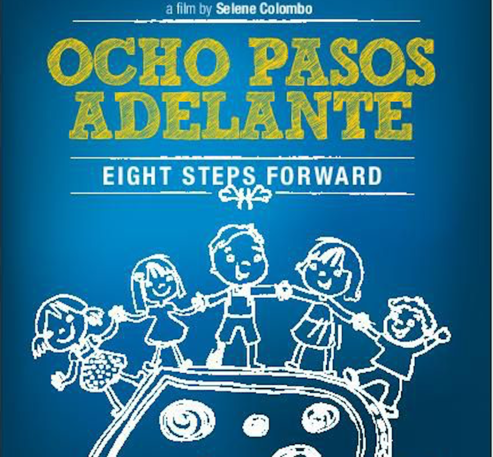


Before the screening of Selene Colombo [2]’s documentary Ocho Pasos Adelante [3], a panel discussion was held where the director herself was accompanied by the Consul General of Italy in New York, Francesco Genuardi [4]; Consul General of Argentina in New York, Mateo Estreme; Commissioner of the New York Mayor's Office for People with Disabilities, Victor Calise [5]; and the Head of the School of Italy G. Marconi [6], Maria Palandra [7]. They focused on the importance of raising awareness on this often misunderstood neurodevelopmental disorder that has become alarmingly common in the past few decades, with approximately 1 out of 88 children now being diagnosed with autism [8].
Inside the Documentary
Ocho Pasos Adelante deals with autism and its symptoms by exposing the history of the disorder while inviting the audience to experience the struggles as well as the triumphs of five Argentinian children, their families and the professionals who help them. Each child in the documentary has been diagnosed with autism yet they all fall on different areas of the spectrum. Colombo breaks barriers in the most touching way by completely removing the fear of the unknown and allowing us to see how these kids are the same as us, they just see the world differently. It is essential that autism is viewed as an opportunity to learn because it is only with this mentality that we will not only grow to be better parents but better human beings.
Awareness, Detection, and Inclusion
The biggest messages Colombo hopes to put forth with this documentary are awareness, detection, and inclusion. The director is extremely proud of the awareness the film has raised thus far and says, “after four years of screenings, we got two laws approved so we couldn’t ask for more.” One includes a national law in Argentina that makes it mandatory for pediatricians to test for early detection of autism for all children within their first 18 months of life. Colombo says that it’s crucial to be diagnosed as soon as possible because there is not much that can be done after the five year mark. The documentary provides clear tips on how to identify autism early for effective intervention which includes infants who make little eye contact and show less attention to social stimuli.
Most importantly, Colombo fights for inclusion. “I hope for inclusion in school and in society, acceptance and inclusion are the keys to make the family happier and remove separation.” It is not by accident that she frequently screens the documentary in schools, preferring the scholastic setting because she believes that it is a way to decrease that feeling of disconnection with autism.
Colombo plans to continue making documentaries and she even has a new project in mind that will take place in Africa. Unfortunately, she says her ideas must remain a secret for now so be sure to follow her work for any updates!
Source URL: http://ftp.iitaly.org/magazine/focus/art-culture/article/ocho-pasos-adelante-dealing-autism
Links
[1] http://ftp.iitaly.org/files/ochoadelantescuoladiitaliapng
[2] http://www.imdb.com/name/nm5640621/
[3] http://www.imdb.com/title/tt2861668/?ref_=nm_knf_t1
[4] http://www.consnewyork.esteri.it/consolato_newyork/en/il_consolato/il_console/il-console.html
[5] http://www.nyc.gov/html/mopd/html/about/bio.shtml
[6] http://lascuoladitalia.org/
[7] http://lascuoladitalia.org/staff/
[8] https://www.autismspeaks.org/what-autism